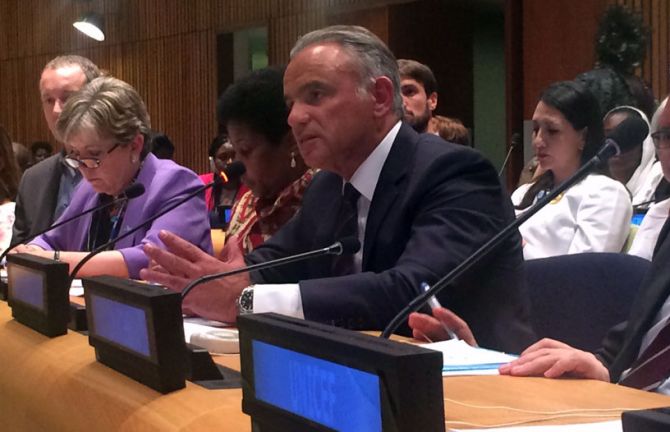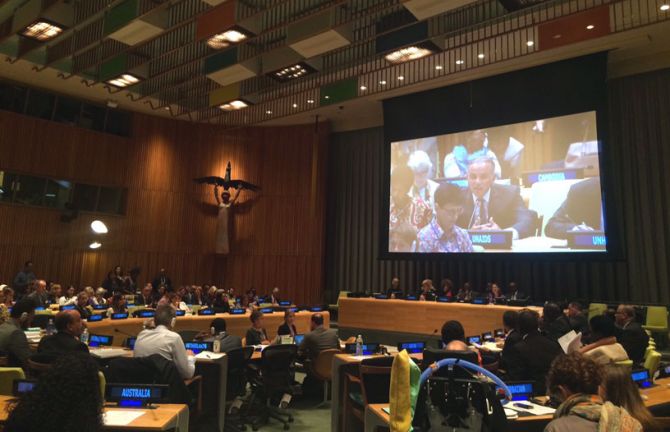


Update
Leaving no one behind in the implementation of the new SDGs
25 September 2015
25 September 2015 25 September 2015As the ground breaking United Nations Sustainable Development Summit got underway in New York on 25 September, high-level delegates discussed how to make the attainment of the newly adopted Sustainable Development Goals (SDGs) a reality on the ground.
The two-day summit, part of the 70th session of the UN General Assembly, is using a series of six interactive dialogues to explore key issues central to the delivery of the SDGs. Each of these dialogues includes representatives of Member States, the UN system, NGOs, civil society organizations, donors and the private sector.
At a dialogue focusing on tackling inequalities, empowering women and girls and leaving no one behind, Member States stressed their commitment to gender equality as a driving force for development and for the achievement of the overall SDGs. Also highlighted was the need for better access to education as well as the heightened vulnerability of women in the context of migration.
UNAIDS Deputy Executive Director Luiz Loures highlighted the fact that although much has been done to challenge inequality there is still a long way to go. He noted that many vulnerable people, such as the current migrants in Europe and people living with HIV, often still face profound inequities and widespread stigma and discrimination.
Mr Loures asserted that women and girls remain disproportionately affected by the HIV epidemic, with adolescent girls 33% more likely to be living with HIV than boys of the same age and transgender women almost 50 times more likely to be HIV-positive than other adults.
The Deputy Executive Director carried a message of hope, however, pointing out that powerful lessons can be learned from the AIDS response which has been one of the biggest social movements in global history. It has led the way, he said, in challenging inequality, promoting human rights, restoring dignity, demanding social justice and leaving no one behind.
As the discussion focused on the means of implementing the targets, Mr Loures highlighted the achievements made by Kenya in the AIDS response and the personal leadership of President Uhuru Kenyatta in demanding data driven policies to illustrate how results can be achieved.
Several key themes informed the five other interactive dialogues: ending poverty and hunger; fostering sustainable economic growth; combating climate change, building accountable and inclusive institutions and delivering on a revitalized Global Partnership.
Conclusions emerging from these dialogues will be presented at the summit’s closing plenary session on 27 September, marking the beginning of a new chapter in the global development agenda.



